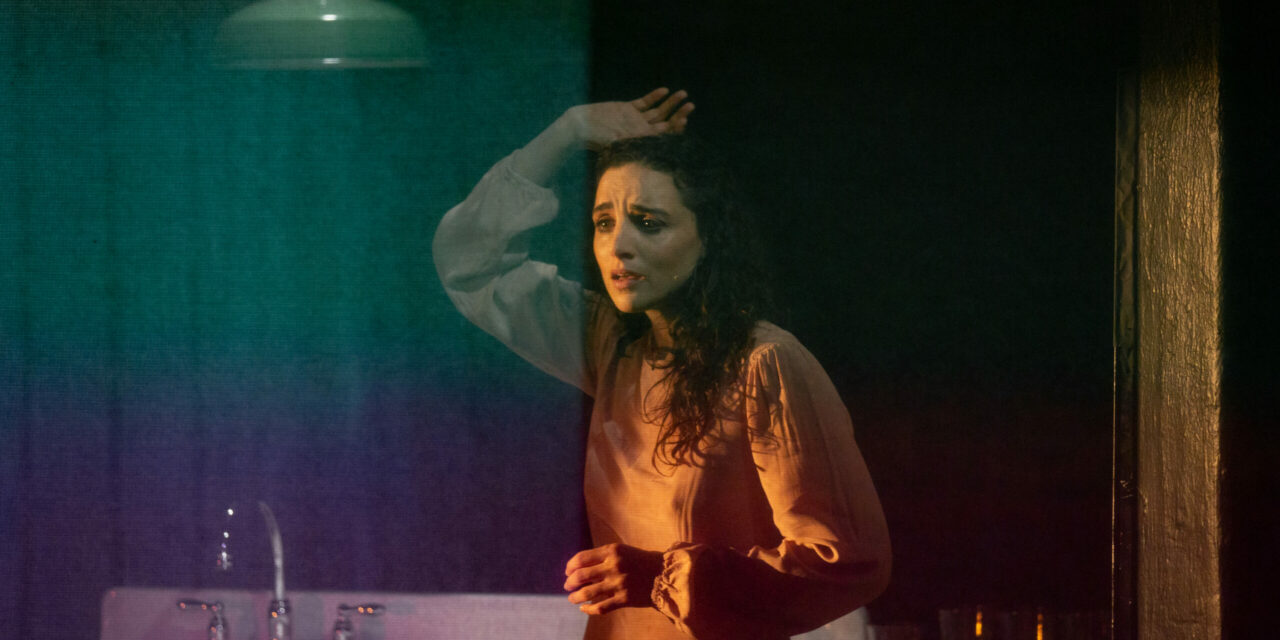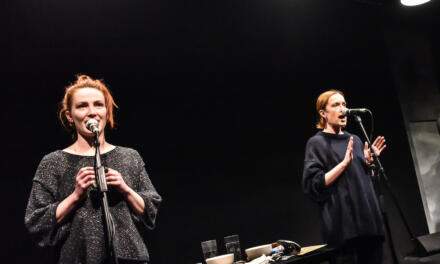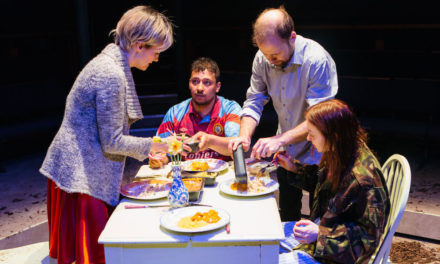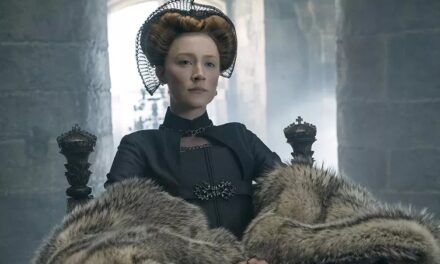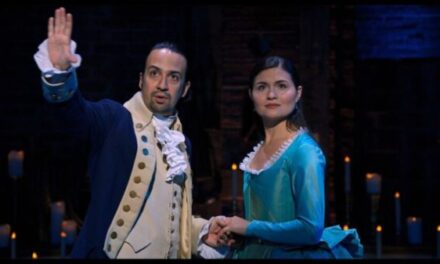What are the first words you think of when you hear the name Mary Magdalene? Prostitute? Saved? Jesus? (#)Me too. In their extraordinary new chamber opera Magdalene, part of Prototype Festival, Danielle Birrittella and Zoe Aja Moore reduce the biblical figure to her mythic components, and rescue her from the myth.
This is a show, unlike anything I’ve ever seen. Or rather, I have seen something like it. Last year’s colossally wasteful Norma Jean Baker of Troy, the world premiere which opened The Shed in New York’s “Hudson Yards.” That piece too set to music the work of a poet, there Anne Carson, here Marie Howe, to simultaneously update and unpack the story of a larger-than-life woman. But where Norma Jean Baker failed, in its pompousness, in its intentional abstruseness, the intimate, purposeful Magdalene succeeds.
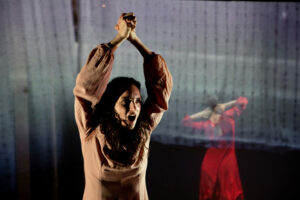
Photo by Maria Baranova.
That is not to say that Magdalene is an unambitious work. On the absolute contrary. For each of the thirteen poems that make up the libretto, a different female composer wrote the music. The international team includes Emma O’Halloran, Bergrún Snæbjörnstdóttir, Kamala Sankaram, and Ruby Kato Attwood. With enough variation that each movement stands on its own, the works nevertheless coalesce into a cohesive whole, minimalist, and moving. Their vision is realized by the New York-based string instrumentalists Desdemona Ensemble and Sonia Bize, playing us to heaven on harp.
Birrittella, who also composed one of the movements, does and does not play Mary Magdalene. With purpose and clarity, she sings the part of “M.”, a woman whose life is defined by desire, growth, human connection, and loss. If you didn’t know the name of the show or the titles of the poems, you would not find it biblical at all, so abstracted is the interpretation from the source material. And this is its strength because never before did I, or possibly any other woman sitting in a small SoHo theater in the 21st century, feel a kinship with Mary Magdalene, Jesus’ friend, and probable lover. The poems bring out the aspects of Magdalene’s story that are at once universal and particular: being sexualized before maturity, loving someone who is doomed, giving yourself to that love. And though Birrittella’s name tells us that she’s probably Italian, her swarthy looks remind us that, after all, Magdalene was Jewish.
A couple things I loved: the poem “Their Bodies,” which is the Magdalene equivalent of “I’m Just a Girl Who Can’t Say No”; the shallow pool on the stage, which is the best use of water in a live performance since Beyoncé performed “Freedom” on her Lemonade tour. A couple things I question, albeit hesitatingly: the use of the dancer Ariana Daub as a shadow M., even though her performance was both strong and vulnerable; the pacing, or maybe the length, as my mind was given time to wander when it hungered for non-stop intensity.
Magdalene is a stunning, powerful show, one of the more moving artistic experiences I’ve had in recent memory. In the dramaturgical statement, festival dramaturg Peter McCabe writes that Mary Magdalene “is mentioned in the Gospels more times than any of the apostles, and she was a witness to the Crucifixion and the Resurrection: to believers, this is as close as a human can be to God.” But watching the show, I kept thinking about Betty Shabazz, the late wife of Malcolm X. Some women wind up known primarily because of the men who loved them, even when they survive those men. To think of them as the women behind the men is wrong. It’s the love itself, transformative and timeless, that’s the real story.
This post was written by the author in their personal capacity.The opinions expressed in this article are the author’s own and do not reflect the view of The Theatre Times, their staff or collaborators.
This post was written by Abigail Weil.
The views expressed here belong to the author and do not necessarily reflect our views and opinions.

